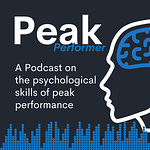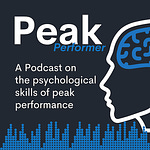Unlock the secrets of personality in this webinar recording, "Understanding Personality." Dive into the science and psychology behind what makes us who we are. Whether you're in leadership looking to enhance team performance, a manager aiming to improve people skills, a parent looking to understand your children, or you're simply curious about the intricacies of human behaviour, this webinar is for you.
Join me for this enlightening session that explores some of the core theories of personality, covering over 150 years of research and practice. You'll gain valuable tools to understand yourself and others better, paving the way for more effective communication and stronger relationships in both work and personal life.
This webinar is suitable for people seeking to get better results in their life and work. Stop acting on impulse and being a slave to automatic responses. Understand why you think and act the way you do. Learn to understand personality and let yourself and others off the hook. Your life will be better for it.
The webinar "Understanding Personality" delves into the intricate and multifaceted study of what defines us as individuals. It explores various theories and perspectives developed over more than a century of dedicated research, shedding light on the complex interplay of traits, behaviours, motivations, and emotions that shape our identities.
Perspectives on Personality
Trait Perspective: The trait perspective is central to the study of personality. It identifies and categorises consistent patterns of behaviour, emotions, and thoughts across individuals. Traits such as extraversion, agreeableness, conscientiousness, neuroticism, and openness to experience provide a framework for understanding and predicting how individuals respond to different situations (Costa & McCrae, 1992).
Type Perspective: The type perspective, exemplified by the Myers-Briggs Type Indicator (MBTI), classifies individuals into distinct categories based on preferences in perception and decision-making. This approach helps in understanding how people differ in their approaches to information processing and interpersonal interactions (McCrae & Costa, 1987).
Humanistic Perspective: Unlike trait and type theories, the humanistic perspective emphasises personal experiences, self-actualisation, and the inherent drive towards growth and fulfilment (Maslow, 1943; Rogers, 1961). This approach underscores the importance of personal choice and subjective experiences in shaping individual personalities.
Behavioural Perspective: Behavioural theories focus on observable behaviours and how external stimuli, reinforcement, and conditioning processes shape them. This perspective highlights the role of environment and learning in influencing personality development (Skinner, 1953).
Cognitive Perspective: Cognitive theories explore how mental processes such as perception, memory, and decision-making contribute to personality development. Cognitive schemas and beliefs influence how individuals perceive and respond to their environment (Bandura, 1986).
Evolutionary Perspective: Evolutionary psychology examines how personality traits have evolved to enhance survival and reproductive success. It explores adaptive behaviours such as aggression, altruism, and mate selection preferences from an evolutionary perspective (Buss, 1991).
Biological and Neurological Perspectives: These perspectives delve into the biological foundations of personality, exploring how genetic factors, brain structures, and neurotransmitter systems contribute to individual differences in temperament and behaviour (Gray, 1982; Cloninger, 1987).
Practical Implications
The webinar "Understanding Personality" offers practical insights and tools that can be applied across various domains:
Enhanced Interpersonal Relationships: Understanding personality can improve empathy, communication, and conflict resolution skills by recognising and respecting individual differences (McCrae & Costa, 1989).
Effective Leadership and Team Dynamics: Leaders can tailor their management styles and build cohesive teams by understanding team members' personalities and motivations (Judge et al., 2002).
Personal Development: Individuals can gain self-awareness, identify strengths and weaknesses, and set realistic goals for personal growth and development (Roberts & Mroczek, 2008).
Parenting and Family Dynamics: Parents can create supportive environments for children's development by understanding their unique personalities and learning styles (Caspi et al., 1988).
Conclusion
"Understanding Personality" invites participants to explore the rich diversity of theories and perspectives that shape our understanding of human behaviour. By examining traits, types, behaviours, cognition, evolution, biology, and neuroscience, this webinar provides a nuanced view of what makes each of us unique.
Whether you are a researcher, educator, leader, or simply curious about the complexities of human nature, this exploration of personality promises to broaden your understanding and deepen your appreciation for the intricacies of human behaviour.
References
Bandura, A. (1986). Social foundations of thought and action: A social cognitive theory. Prentice-Hall, Inc.
Buss, D. M. (1991). Evolutionary personality psychology. Annual Review of Psychology, 42, 459-491.
Caspi, A., Elder, G. H., & Bem, D. J. (1988). Moving against the world: Life-course patterns of explosive children. Developmental Psychology, 24(6), 831-851.
Costa, P. T., & McCrae, R. R. (1992). NEO PI-R professional manual. Psychological Assessment Resources.
Gray, J. A. (1982). The neuropsychology of anxiety: An enquiry into the functions of the septo-hippocampal system. Oxford University Press.
Judge, T. A., Bono, J. E., Ilies, R., & Gerhardt, M. W. (2002). Personality and leadership: A qualitative and quantitative review. Journal of Applied Psychology, 87(4), 765-780.
Maslow, A. H. (1943). A theory of human motivation. Psychological Review, 50(4), 370-396.
McCrae, R. R., & Costa, P. T. (1989). Reinterpreting the Myers-Briggs Type Indicator from the perspective of the five-factor model of personality. Journal of Personality, 57(1), 17-40.
Rogers, C. R. (1961). On becoming a person: A therapist's view of psychotherapy. Houghton Mifflin.
Skinner, B. F. (1953). Science and human behaviour. Free Press.












Share this post